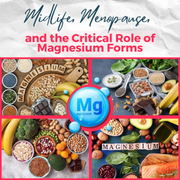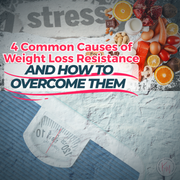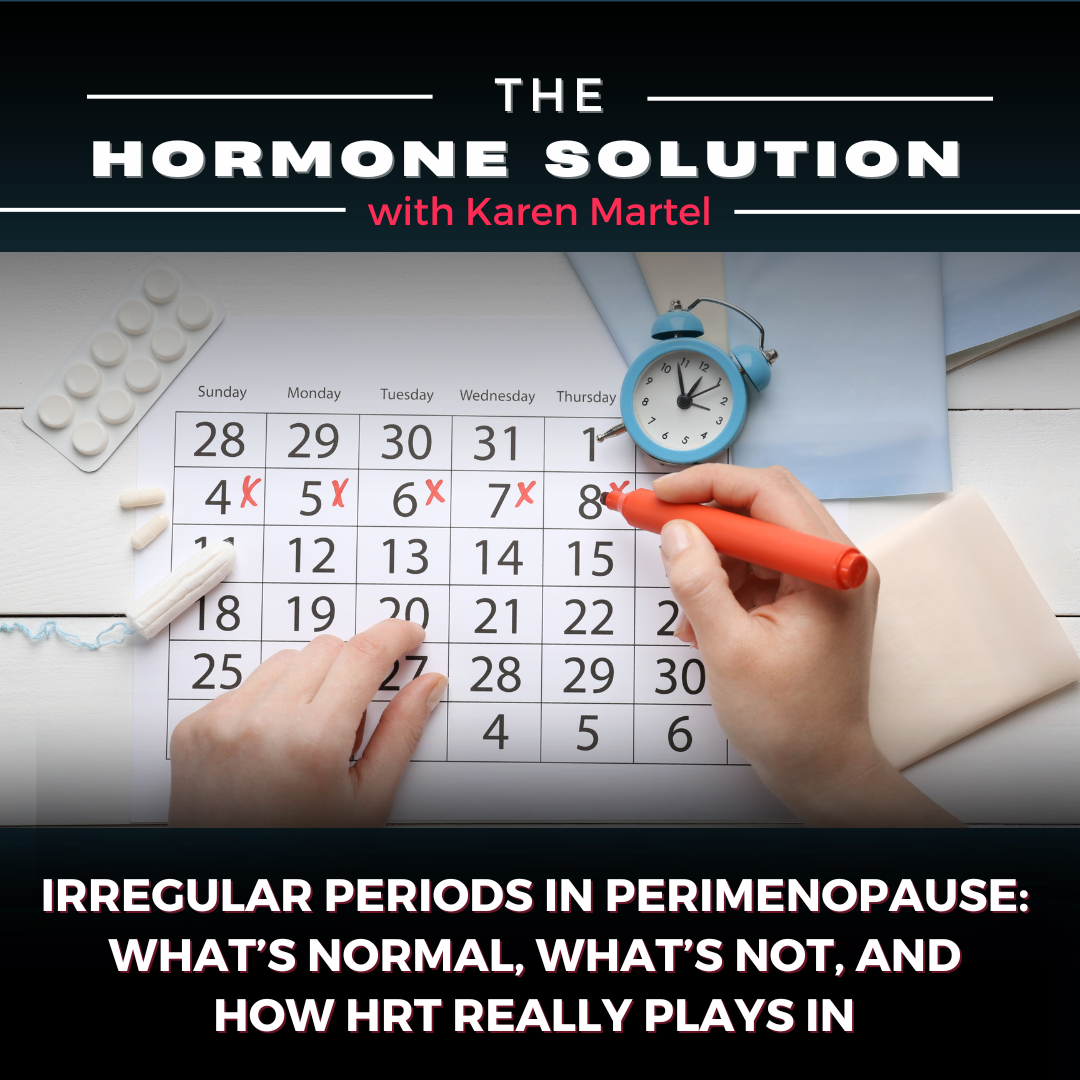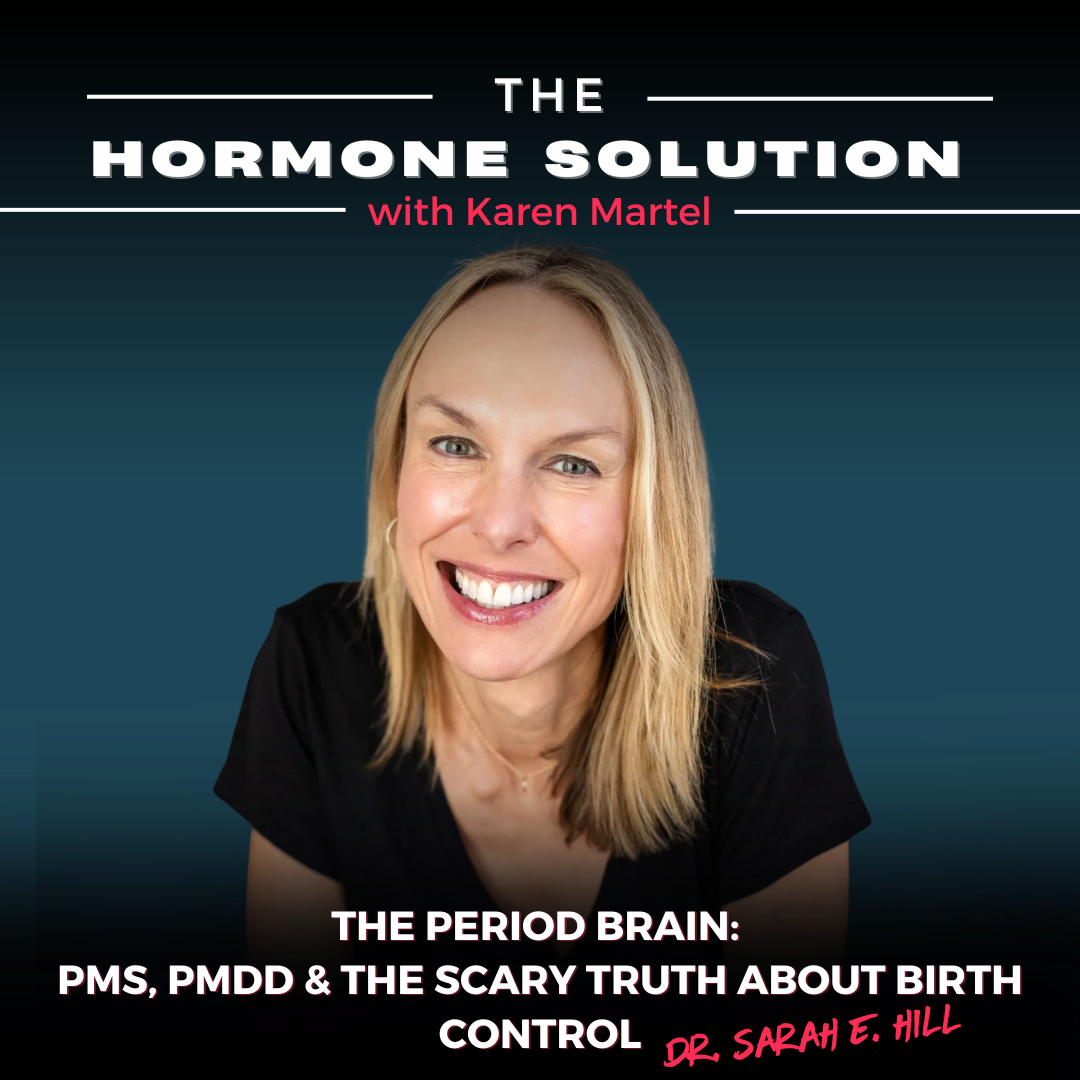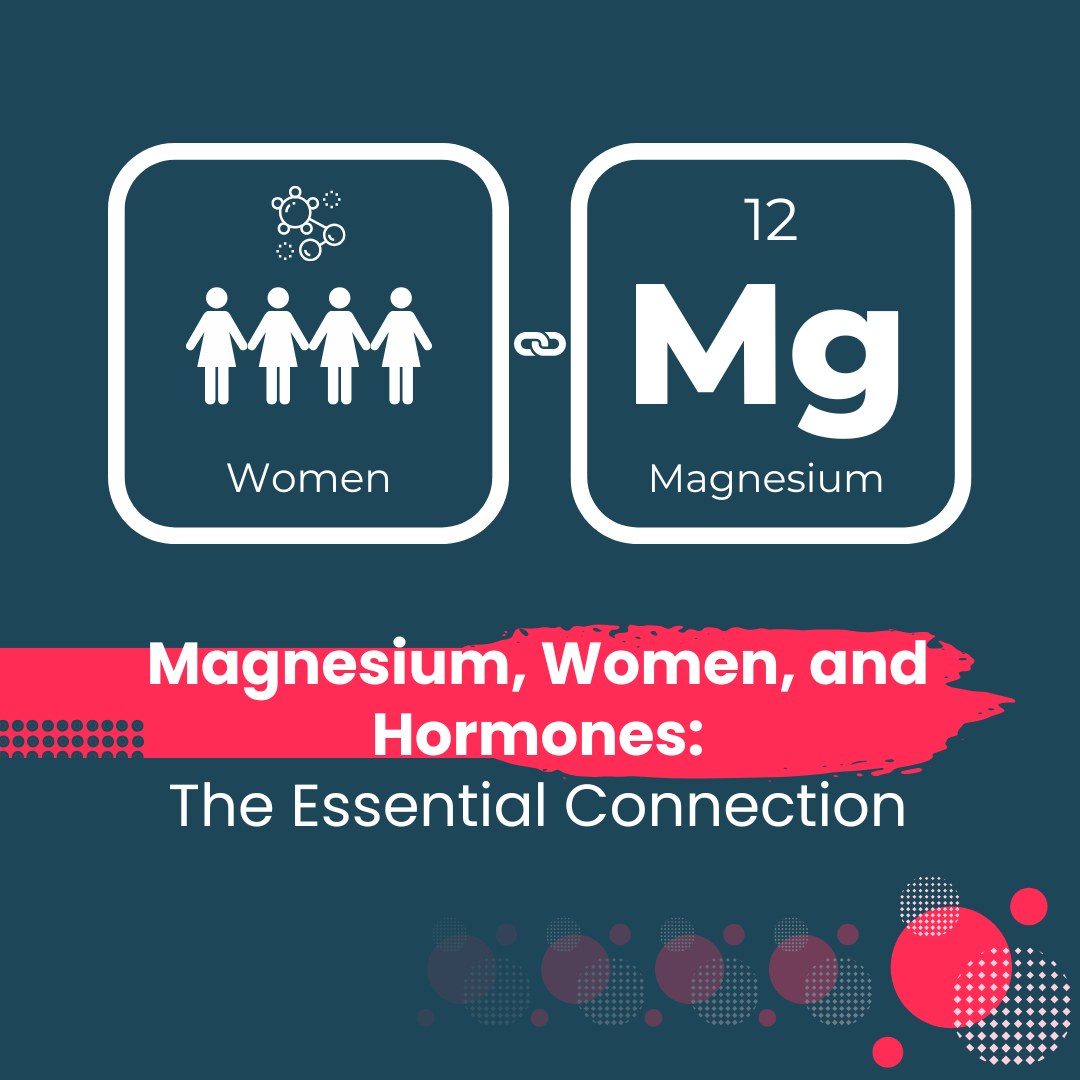
Magnesium, Women, and Hormones: The Essential Connection
Magnesium is an essential mineral often overlooked in health discussions, yet it plays a pivotal role in many of the body's regulatory systems—particularly those that affect women and their hormones. From easing menstrual discomfort to supporting bone health and mitigating symptoms associated with menopause, understanding magnesium's impact is crucial for women's wellness.
The Role of Magnesium in Women’s Health
1. Hormonal Balance and Menstrual Health
- Regulates Estrogen and Progesterone: Magnesium influences enzymes such as aromatase that convert androgens into estrogens and supports progesterone regulation by acting on the pituitary gland (Rosanoff, Weaver, & Rude, 2012).
- Relieves Menstrual Pain: Magnesium supplementation relaxes uterine muscles and reduces prostaglandin production, which can alleviate menstrual cramps (Facchinetti et al., 1991).
- Supports PMS Relief: Lower magnesium levels are linked to PMS symptoms, and supplementation has demonstrated mood-stabilizing and physical symptom improvement (Walker et al., 1998).
2. Perimenopause and Menopause Support
-
Alleviates Menopausal Symptoms: Magnesium helps reduce hot flashes and improve sleep by modulating nervous system function (Abbasi et al., 2012).
-
Cardiovascular Protection: It supports heart rhythm and blood pressure regulation, counteracting increased cardiovascular risk post-menopause (Gupta et al., 2014).
3. Mental Health and Stress Response
- Mood Regulation: Magnesium impacts neurotransmitters such as serotonin and GABA, important for emotional well-being (Boyle, Lawton, & Dye, 2017).
- Reduces Stress and Cortisol: Magnesium supplementation can decrease cortisol levels and the stress response (Mousain-Bosc et al., 2006).
4. Blood Sugar, Thyroid, and Fertility
- Blood Sugar Control: Magnesium improves insulin sensitivity, beneficial for conditions like PCOS (Gupta, Gupta, & Gupta, 2021).
- Thyroid Function: It assists in converting inactive thyroid hormone (T4) to active T3, aiding metabolism regulation (Rajendran et al., 2018).
- Fertility: Magnesium supports ovulation and hormone synthesis, critical for reproductive health (Marzec-Wróblewska et al., 2017).
How to Ensure Adequate Magnesium
Daily Needs
- Women ages 19–30: 310 mg/day
- Women ages 31 and older: 320 mg/day
- Pregnant women: 350–360 mg/day (National Institutes of Health, 2023)
Dietary Sources
| Food Item | Mg Per Serving (approx.) |
| Almonds (1 oz) | 80 mg |
| Spinach (½ cup) | 78 mg |
| Oatmeal (1 cup) | 63 mg |
| Black beans (½ cup) | 60 mg |
| Brown rice (½ cup) | 42 mg |
Supplements can aid those unable to obtain sufficient magnesium from diet alone. Consultation with a healthcare provider is recommended.
Conclusion
Maintaining optimal magnesium levels can profoundly support women's hormonal health—minimizing cycle discomfort, promoting emotional balance, safeguarding bone and cardiovascular health, improving fertility, and more. Including magnesium-rich foods and, when necessary, supplements can be vital for holistic wellness throughout a woman’s life.
My Favorite Magnesium Supplement
I’ve tried a lot of magnesium supplements over the years, but the one I keep coming back to is BIOptimizers Magnesium Breakthrough. It’s the only one I’ve found that actually makes a noticeable difference in how I feel—especially with sleep, stress, and muscle tension.
What I really like about it is that it combines all seven forms of magnesium, which seems to cover all the bases without upsetting my stomach (a common issue I’ve had with others). I take it at night, and I genuinely notice deeper sleep and feel more relaxed heading into bed. It’s also been helpful for supporting my nervous system—something I pay close attention to given the demands of running a business and parenting.
If you’re curious and want to try it out, here’s the link, and you can use the code hormone for 10% off. Let me know how it works for you—magnesium has been a game-changer for me.
References
- Abbasi, B., Kimiagar, M., Sadeghniiat, K., Shirazi, M. M. A., Hedayati, M., & Rashidkhani, B. (2012). The effect of magnesium supplementation on primary insomnia in elderly: A double-blind placebo-controlled clinical trial. Journal of Research in Medical Sciences, 17(12), 1161–1169. https://www.ncbi.nlm.nih.gov/pmc/articles/PMC3703169/
- Boyle, N. B., Lawton, C., & Dye, L. (2017). The effects of magnesium supplementation on subjective anxiety and stress—a systematic review. Nutrients, 9(5), 429. https://doi.org/10.3390/nu9050429
- Facchinetti, F., Borella, P., Fioroni, L., Nappi, R. E., Genazzani, A. R. (1991). Magnesium prophylaxis of menstrual migraine: Effects on intracellular magnesium. Headache, 31(10), 298–301.
- Gupta, P., Gupta, M., & Gupta, R. (2021). Magnesium and insulin resistance: A review. International Journal of Diabetes in Developing Countries, 41(2), 133-138. https://doi.org/10.1007/s13410-020-00889-4
- Gupta, R., Mahajan, V. K., Kamal, S., & Singh, N. (2014). Magnesium in cardiovascular diseases: a review. Indian Heart Journal, 66(2), 258–265. https://doi.org/10.1016/j.ihj.2014.05.019
- Marzec-Wróblewska, U., Wolska, E., & Ziętek, M. (2017). Role of magnesium in female fertility and pregnancy: A review. Magnesium Research, 30(4), 223-231. https://doi.org/10.1684/mrh.2017.0433
- Mousain-Bosc, M., Roche, M., Polge, A., Pradal-Prat, D., & Rapin, J. (2006). Magnesium supplementation in children with attention deficit hyperactivity disorder. Magnesium Research, 19(3), 153-161.
- National Institutes of Health. (2023). Magnesium — Fact Sheet for Health Professionals. Office of Dietary Supplements. https://ods.od.nih.gov/factsheets/Magnesium-HealthProfessional/
- Rajendran, R., Somasundaram, P., & Mohan, V. (2018). Role of magnesium in thyroid disorders: an overview. Journal of Thyroid Research, 2018, Article ID 4692536. https://doi.org/10.1155/2018/4692536
- Rosanoff, A., Weaver, C. M., & Rude, R. K. (2012). Suboptimal magnesium status in the United States: Are the health consequences underestimated? Nutrition Reviews, 70(3), 153–164. https://doi.org/10.1111/j.1753-4887.2011.00465.x
- Walker, A. F., De Souza, M. T., Vickers, M. R., Abeyasinghe, R. M., & Robinson, P. A. (1998). Magnesium supplementation alleviates premenstrual mood symptoms in women. Psychosomatic Medicine, 60(4), 436–442. https://doi.org/10.1097/00006842-199807000-00012

Find Karen Martel on Apply Podcast
Karen Martel is a Certified Hormone Specialist and Transformational Nutrition Coach dedicated to empowering women through their health journeys.
As the host of the popular podcast The Hormone Solution, Karen tackles the complexities of hormonal health, weight loss resistance, and the challenges that come with perimenopause and menopause.
Her mission is to disrupt outdated narratives surrounding women's health, providing reliable information and practical solutions that help women reclaim their vitality.
Tune in to discover how to embrace life's stages while enhancing overall well-being.

